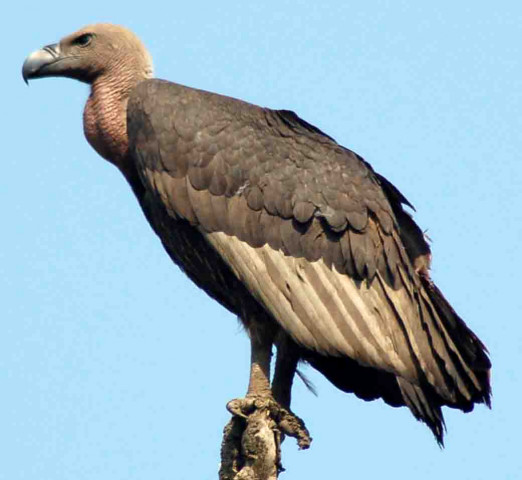Bird conservation: Learning about vultures and how to protect them
WWF event includes screening of documentary, games, guided tours.

Children from several public schools participated in an event organised by the World Wide Fund-Pakistan (WWF) on Saturday to create awareness about conservation of vultures.
The event was held at the Lahore Zoo. It included screening of a 40-minute documentary titled Missing Vultures. The documentary was produced by Ali Ejaz and funded by the WWF.
There were several gaming competitions to educate students about vulture conservation and a lucky draw in which four families won a free visit in November to the WWF’s Vulture Conservation Centre at Changa Maanga.
Visitors were educated about species of birds through information cards and the documentary. Guided tours of the aviary at the Zoo were also arranged.
Sadaf Saleem, the WWF vulture project coordinator, said that some 30,000 people were reached for the event. She said on the average, some 15,000 people visited the zoo on Saturdays. The rest were WWF’s vulture conservation page subscribers on Facebook.
She said 13 people had signed up to adopt a vulture at the Conservation Centre. Adopting a vulture for six months costs Rs1,000.
Faisal Fareed, manager of the Vulture Conservation Centre, said the event was arranged at the Zoo as it was easier to attract onlookers. Talking to The Express Tribune, he said vulture population had declined by 50 per cent between 2000 and 2003. He said there had been a slight increase in the vulture population after the setting up of the Conservation Centre.
He said four sites in the Punjab and two in Sindh were surveyed by the WWF officers for vulture populations in 2010 and 2011. As many as 13 nests were found in the areas in 2011 compared to seven in 2010, he said.
Fareed said that the conservatory in Changa Manga was set up eight years ago.
“It houses 21 Indian white-backed vultures which are the most critically endangered of the eight vulture species,” he said.
He added the project was at the nascent stage.
Fareed said a white-backed vulture lives up to 50 years in the wild and about 20 to 30 years in captivity. There are currently 50 to 60 Indian white-backed vultures in Pakistan.
He said in the early 2000s, vulture population in Pakistan had dropped as a result of feeding on livestock carcasses containing diclofenac sodium. He said the drug caused renal failure in vultures. It was banned in 2006. Sri Lanka and Bangladesh subsequently followed suit.
Fareed said vulture conservation required great patience.
“There are three stages – protection, increasing the population and rehabilitation. We are currently focusing on nurturing the saved chicks at the Conservation Centre and monitoring the population in the wild. The population should increase in 15 to 20 years, provided they are closely monitored and protected,” said Fareed.
Published in The Express Tribune, September 2nd, 2012.



















COMMENTS
Comments are moderated and generally will be posted if they are on-topic and not abusive.
For more information, please see our Comments FAQ